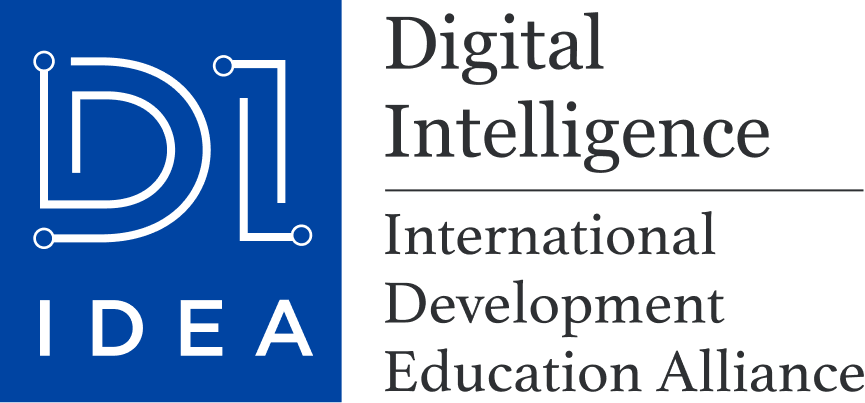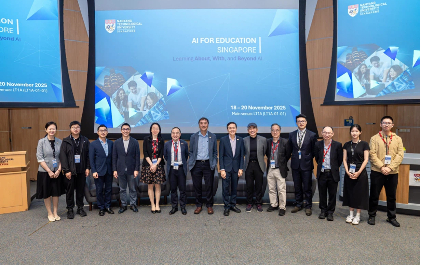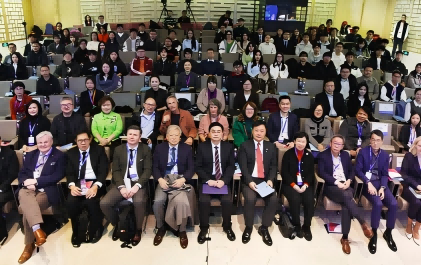On the morning of November 3, 2023, the Digital Intelligence International Development Education Alliance (DI-IDEA) was officially launched during Session 9 of the Beijing Forum (2023). This session, which took place at the Science Lecture Hall of Zhongguanyuan Global Village PKU from November 3 to 4, was jointly hosted by Peking University’s Office of International Relations, Office of the Provost, and Center for Excellent Teaching and Learning. As the inaugural meeting of DI-IDEA members, the session brought together famed experts and scholars from Asia, Europe, and the Americas to explore the evolution of global higher education in the era of digitization and intelligence.
Prominent attendees included Gong Qihuang, President of Peking University and a member of the Chinese Academy of Sciences; Teruo Fujii, President of the University of Tokyo; Zhang Pingwen, President of Wuhan University and a member of the Chinese Academy of Sciences; Song Yonghua, Rector of the University of Macau; Tzu-Chi Wang, President of the Chinese Culture University; Soulaymane Kachani, Executive Vice Provost of Columbia University; Susana Mourato, Vice President of the London School of Economics and Political Science; Thatchavee Leelawat, Vice President of Mahidol University; Wang Fan, Deputy Party Secretary of Sun Yat-sen University; Pan Baotian, Vice President of Lanzhou University; Xi Guang, Vice President of Xi’an Jiaotong University; Zhang Zhaoguo, Vice President of Shanghai Jiao Tong University; Zhou Congzhao, Vice President of the University of Science and Technology of China; Sun Litao, Vice President of Southeast University; and Gong Peng, Vice President of the University of Hong Kong. The opening ceremony and keynote session were chaired by Wang Bo, Vice President and Provost of Peking University.
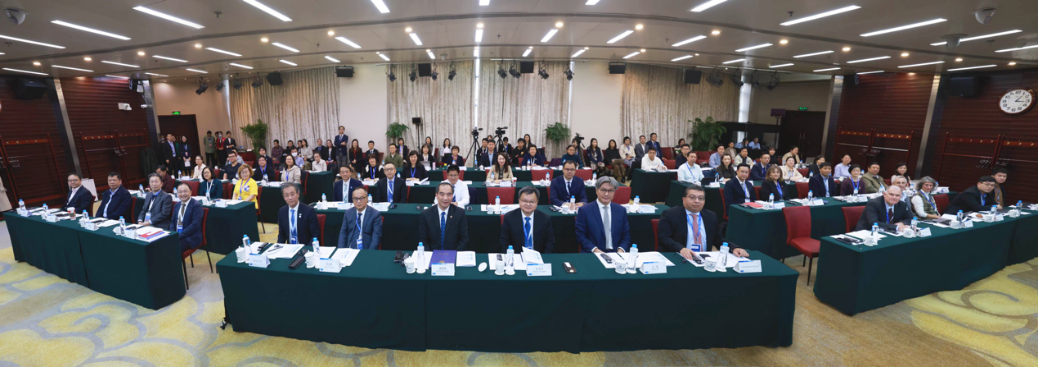
Group Photo of Attendees
During his speech, Gong Qihuang pointed out that the digital intelligence era presents unparalleled opportunities and challenges for education and academia. In response, Peking University has carried out explorations in three aspects: first, developing online classrooms and individualized instruction systems; second, adapting to new requirements for premier innovative talent by robustly nurturing interdisciplinary skills in this digital era; third, employing new technologies to create platforms for international collaboration. Gong believed that the DI-IDEA would enhance cooperation and exchanges within the international higher education community. He hoped the Alliance would facilitate the integration of emerging technologies into higher education, driving reforms and breakthroughs worldwide and benefit human society as a whole.
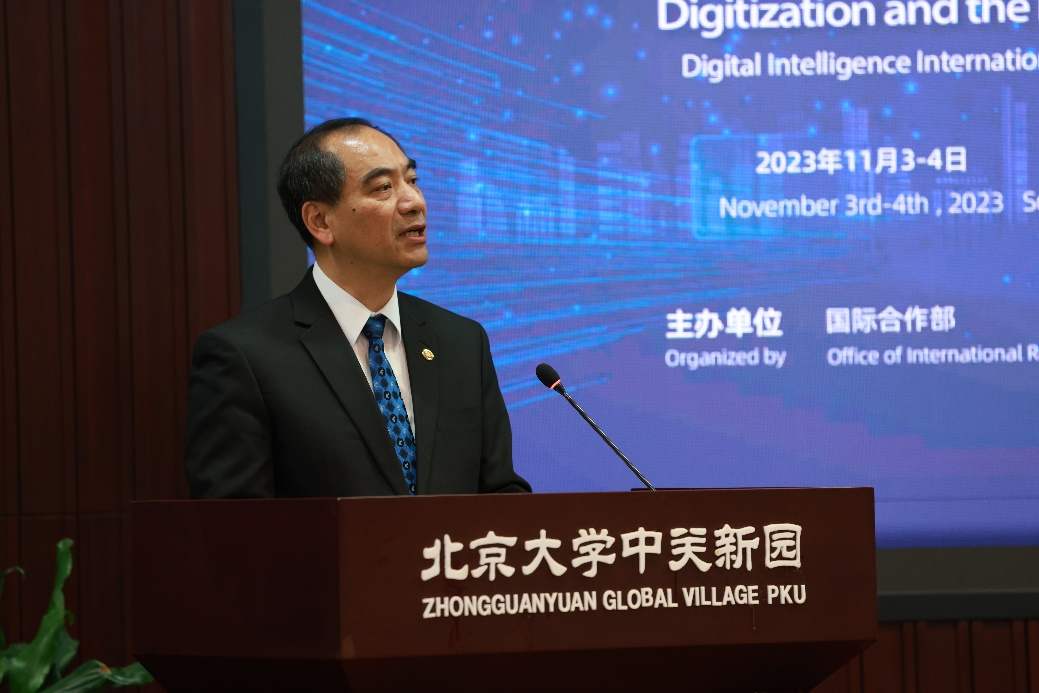
Speech by Gong Qihuang
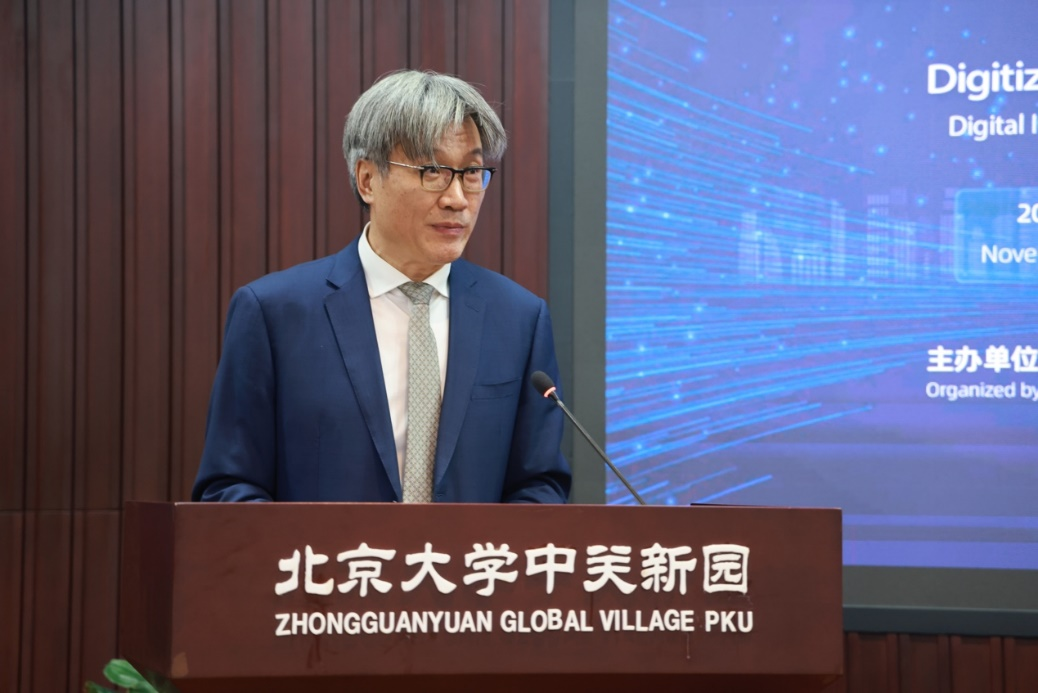
Remarks by Wang Bo
Song Yonghua analyzed the opportunities and challenges facing higher education in the age of digital intelligence from three perspectives: first, methodological innovations that overcome temporal and spatial constraints, enabling cross-regional collaboration in higher education; second, governance reforms that support the creation of smart campuses, enhancing resources, efficiency, and services; third, the need to innovate and integrate disciplines and promote talent development. Song highlighted the importance of acknowledging the symbiotic relationship between digital intelligence and the humanities, and of creating new approaches and methods for talent development through practice.
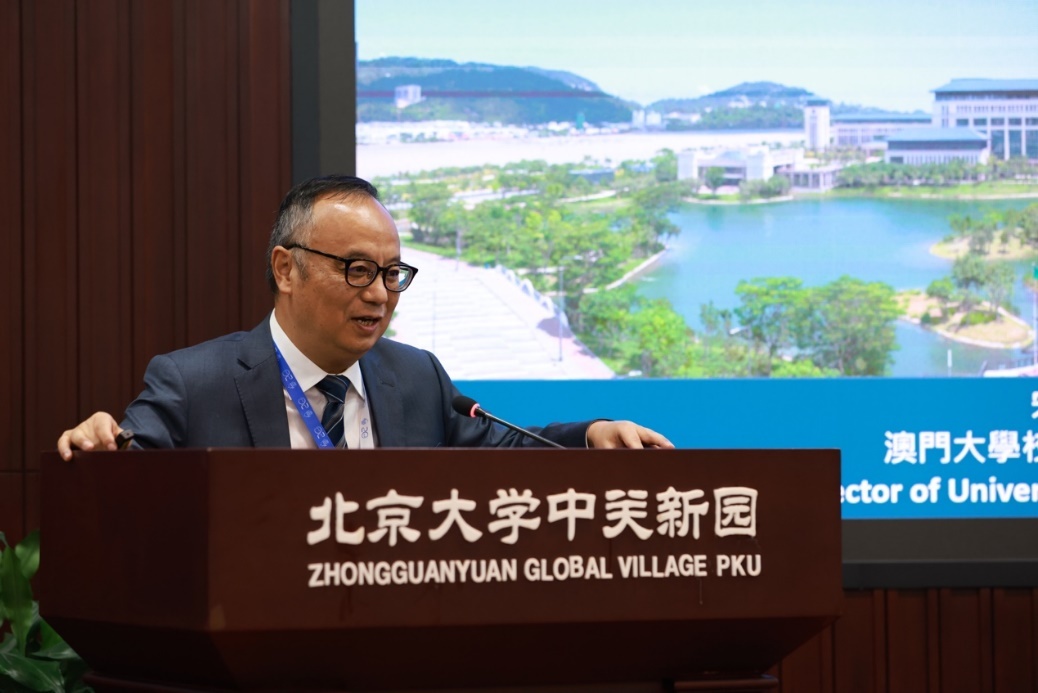
Keynote Speech by Song Yonghua
Zhang Pingwen noted that digital thinking and digital literacy are crucial for citizens in the digital intelligence era. He expects each university to develop a comprehensive system for fostering digital talent, ensuring full student coverage along with universally accessible courses and resources. At the heart of this strategy lies the need to grasp the essence of data science. Zhang also introduced Wuhan University’s practices of nurturing digital intelligence talent and its “five-in-one” training system.
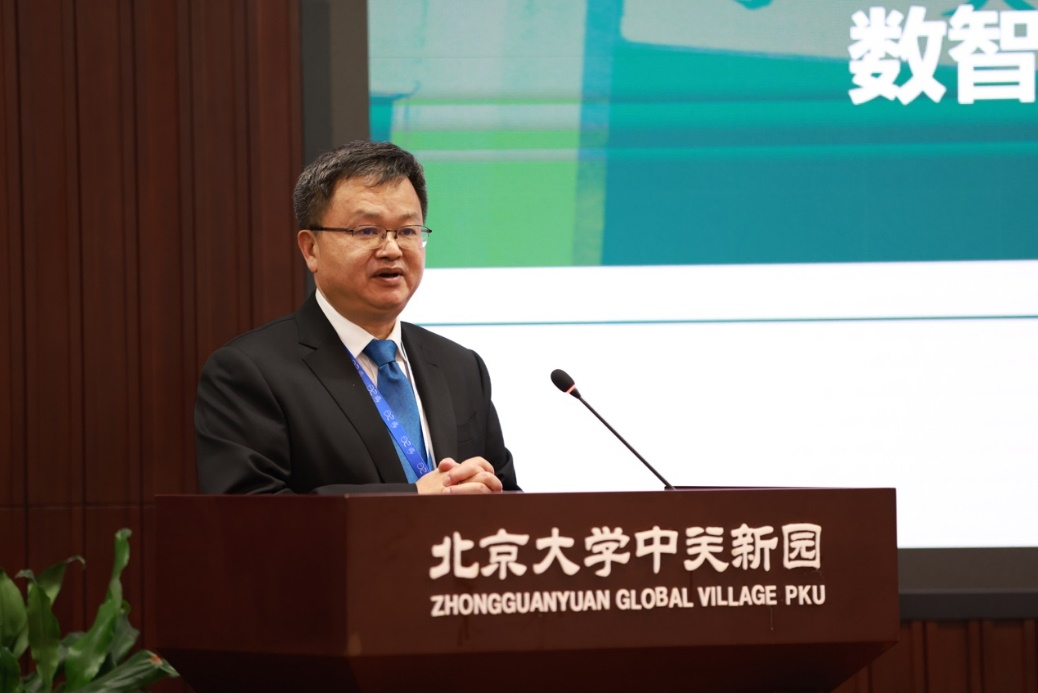
Keynote Speech by Zhang Pingwen
Soulaymane Kachani believes that the future of education will involve a hybrid of online and offline teaching methods, and that the primary obstacle to digitization will be managerial rather than technological. He advocates for greater investment in on-campus resources and identifies AI as the key driver of educational transformation in the coming 5 to 10 years.
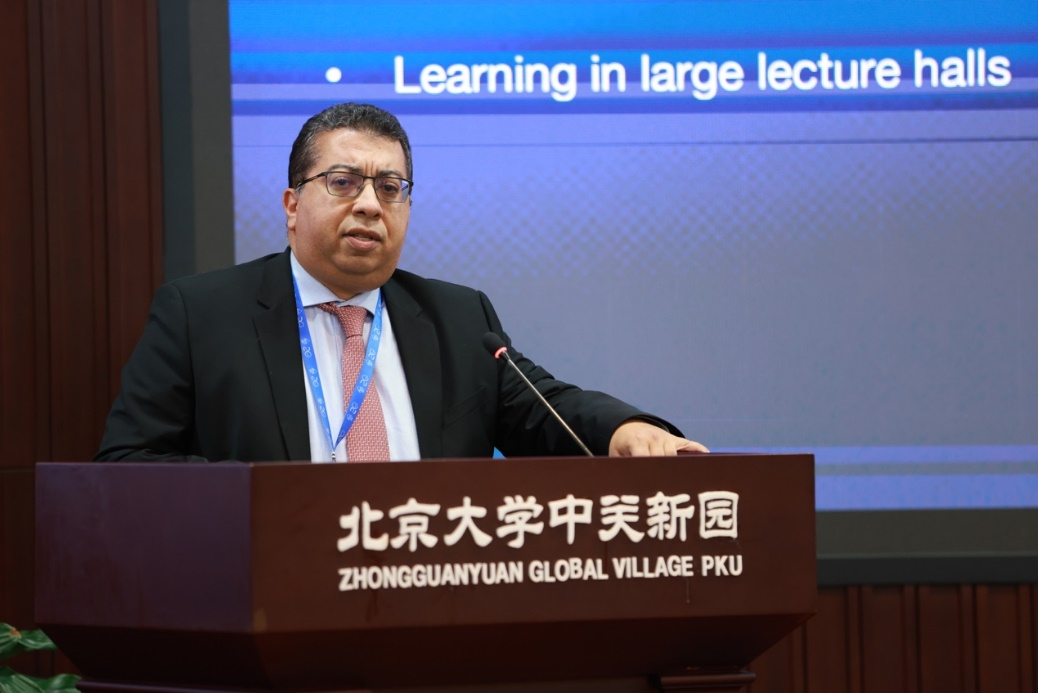
Keynote Speech by Soulaymane Kachani
Sun Hua, Director of the Office of the Provost and Center for Excellent Teaching and Learning of Peking University, and Secretary General of the DI-IDEA, briefly introduced the Alliance’s initiatives to the experts and scholars present. In 2023, the “International Strategic Year”, Peking University launched the DI-IDEA with nearly 30 institutions of higher education worldwide. With the endorsement and guidance of China’s Ministry of Education, this Alliance aims to combine the forces of the higher education sector to tackle major challenges of the digital intelligence era, explore digital governance methods, and provide academic support and policy recommendations for the betterment of human society. It will introduce a series of cooperation and exchange programs and is open to participation from more international universities.
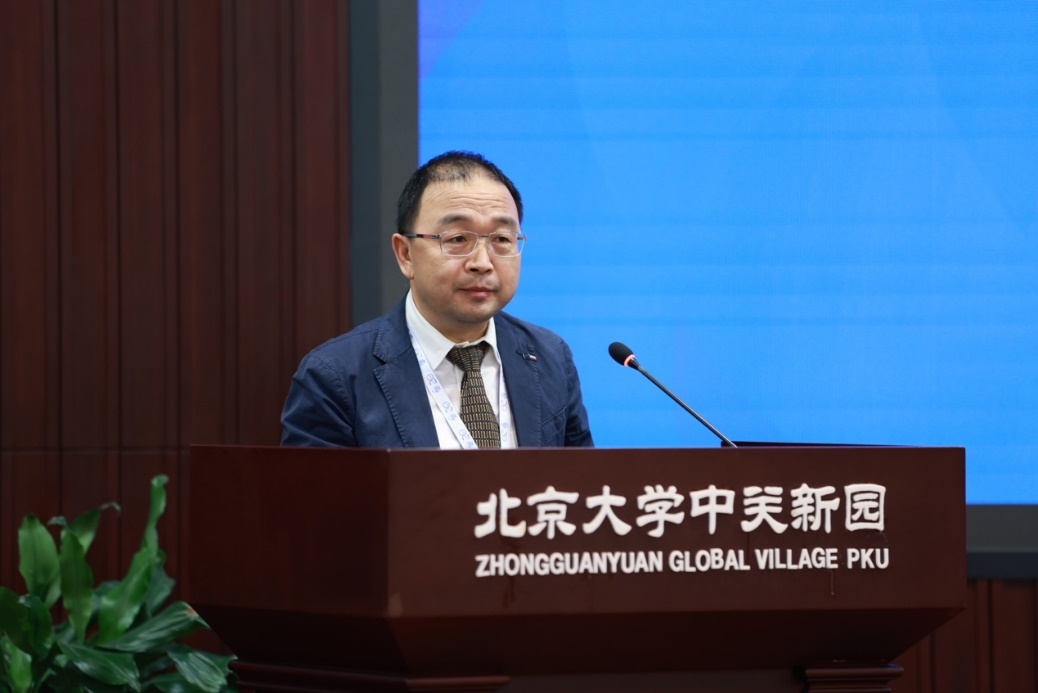
Introduction to the DI-IDEA by Sun Hua
Sun Hua also chaired the keynote session on November 3. Patrick Carmichael, Managing Director of Cambridge Teacher Research Exchange (Camtree), emphasized in his presentation the positive impacts of knowledge sharing on learning outcomes, disciplinary development, teaching insights, and career advancement. Camtree’s main purpose is to facilitate the sharing of educational resources through digital libraries and other channels, building a global network of educators, and promoting systemic and policy changes by harnessing collective intelligence.
Yan Fengqiao, Dean of the Graduate School of Education at Peking University, argued that digital intelligence marks a significant evolution in human knowledge. In this era of digital intelligence, the explosion and selection of information present substantial challenges to education. He asserted that with the ongoing technological revolution and the evolving global environment, the gaps between technological advancements and social changes, along with the disconnect between the physical and cognitive realms, are clearly evident. Knowledge transcends the mere accumulation of data; it requires a human perspective. Therefore, Yan champions an educational philosophy that integrates digitization with the humanities.
Simon Walker from University College London claimed that the academic world is facing challenges from new technologies. As blended learning becomes more common, significant portions of education will occur in virtual environments, highlighting the critical role of course design. Furthermore, generative AI is reshaping both teaching and research. While leveraging AI’s benefits, it is imperative to address ethical issues, combat development inequalities, and ensure that human morals and values remain at the forefront of AI’s ongoing development.
Wang Zhidong, Chairman and CEO of Beijing Yilian Yisheng Technology Co., Ltd., discussed the starting point of education. He stated that the task of reducing poverty by promoting basic education has largely been fulfilled in China. Nonetheless, this accomplishment is not the ultimate goal of rural education but rather marks the start of a new phase aimed at ensuring equitable and high-quality education for all. Wang hopes that, in the context of rural revitalization, China will be able to utilize digital technologies to tackle the ideological challenges and pain points of rural education.
Julia Chen, Director of the Educational Development Centre at the Hong Kong Polytechnic University, emphasized the transformative effects of AI on higher education, specifically in reshaping learning and teaching methods. She stressed the ongoing challenge for educators to deliver knowledge beyond what generative AI can offer. She champions a comprehensive overhaul of the educational paradigm, calling for a shift that goes beyond mere modifications in teaching, learning, and assessment practices. She holds that this goal is something universities should actively pursue.
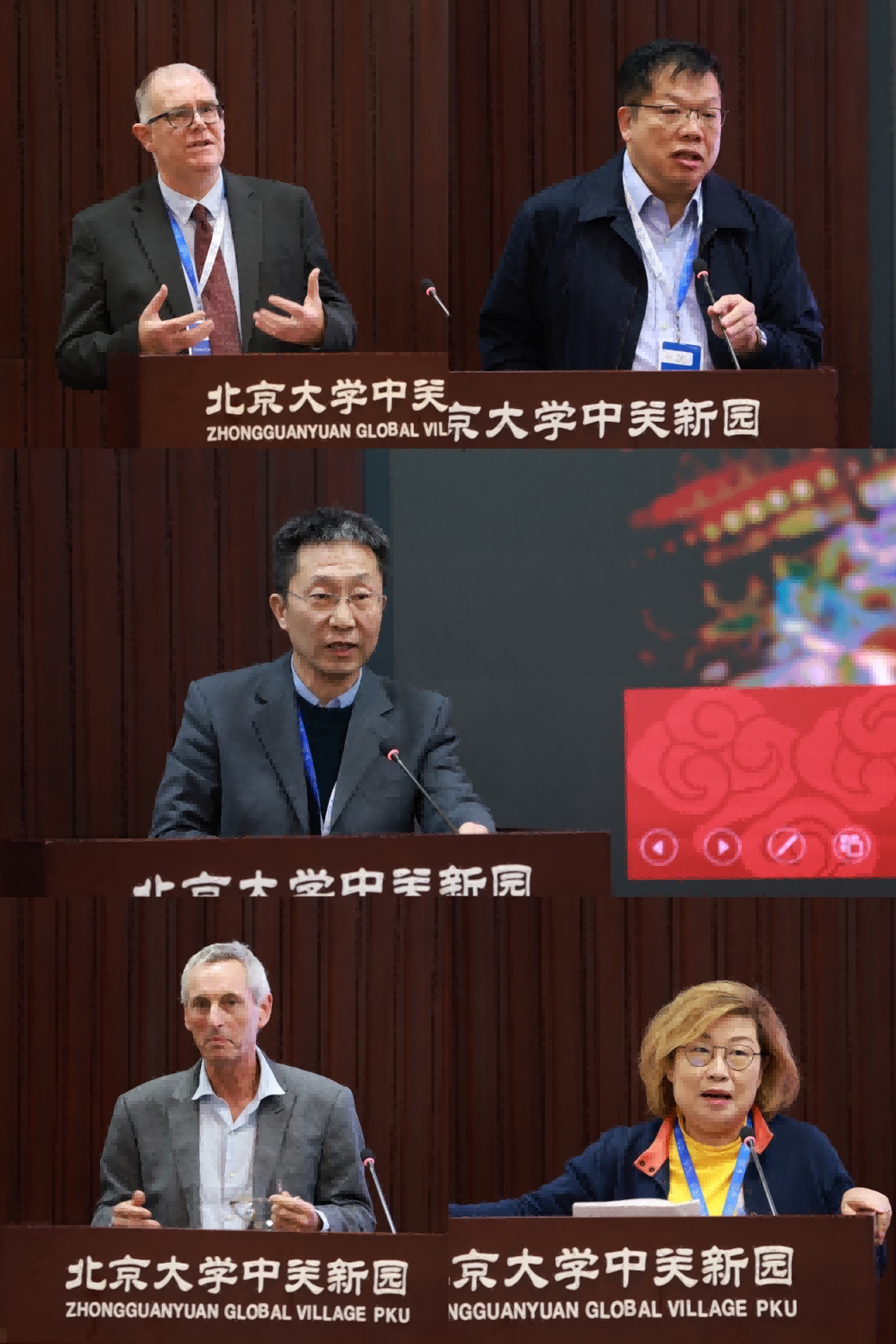
Keynote Speeches on November 3
The keynote session on the morning of November 4 was chaired by Lin Fengmin, Deputy Director of the Center for Excellent Teaching and Learning at Peking University.
Kevin Martin, Managing Director of the Digital Education Futures Initiative at Cambridge, observed that the global higher education sector is experiencing significant and swift changes. The adoption of AI technology and the broader reach of the Internet have been challenging conventional educational paradigms and influencing reforms in three main areas: teaching and learning processes, accessibility of education, and educational assessment systems.
Wang Qiong from the Graduate School of Education at Peking University stated that ChatGPT would play a greater role in the learning processes. As intelligent systems come into play, it is imperative to adopt a four-dimensional approach that extends beyond the traditional relationships between teachers and students, or between students themselves, and encompasses interaction with technological environments.
Sam Smidt, Academic Director of King’s Academy at King’s College London, discussed the issue of educational leadership. As he put it, an international educational leadership program, initiated by four universities, seamlessly merges pedagogy with digital advancement. This program creatively embeds innovative technologies into educational practices, with a strong focus on inclusiveness and diversity.
Guo Wenming from the Graduate School of Education at Peking University reviewed the evolution of education from ancient times to the modern era, before delving into the transformative impacts of AI on education. He envisioned an AI-driven methodology within the knowledge framework of the digital age.
In her speech, Cecilia Chun, Director of the Centre for Learning Enhancement and Research at the Chinese University of Hong Kong, discussed how to enhance university students’ digital literacy, computational thinking, and AI skills throughout the educational process, which includes both formal courses and work-based learning. She hopes that universities will encourage students to use digital technology for creative ex
Hong Huaqing from Nanyang Technological University, Singapore analyzed the challenges of digital transformation in education. He pointed out that while many educational establishments invested heavily in hardware, they often lacked sufficient focus on data analysis, as well as the independent development and testing of learning platforms in line with their own needs. Digital transformation in education should extend beyond information technology; it must also utilize data to redefine smart teaching.
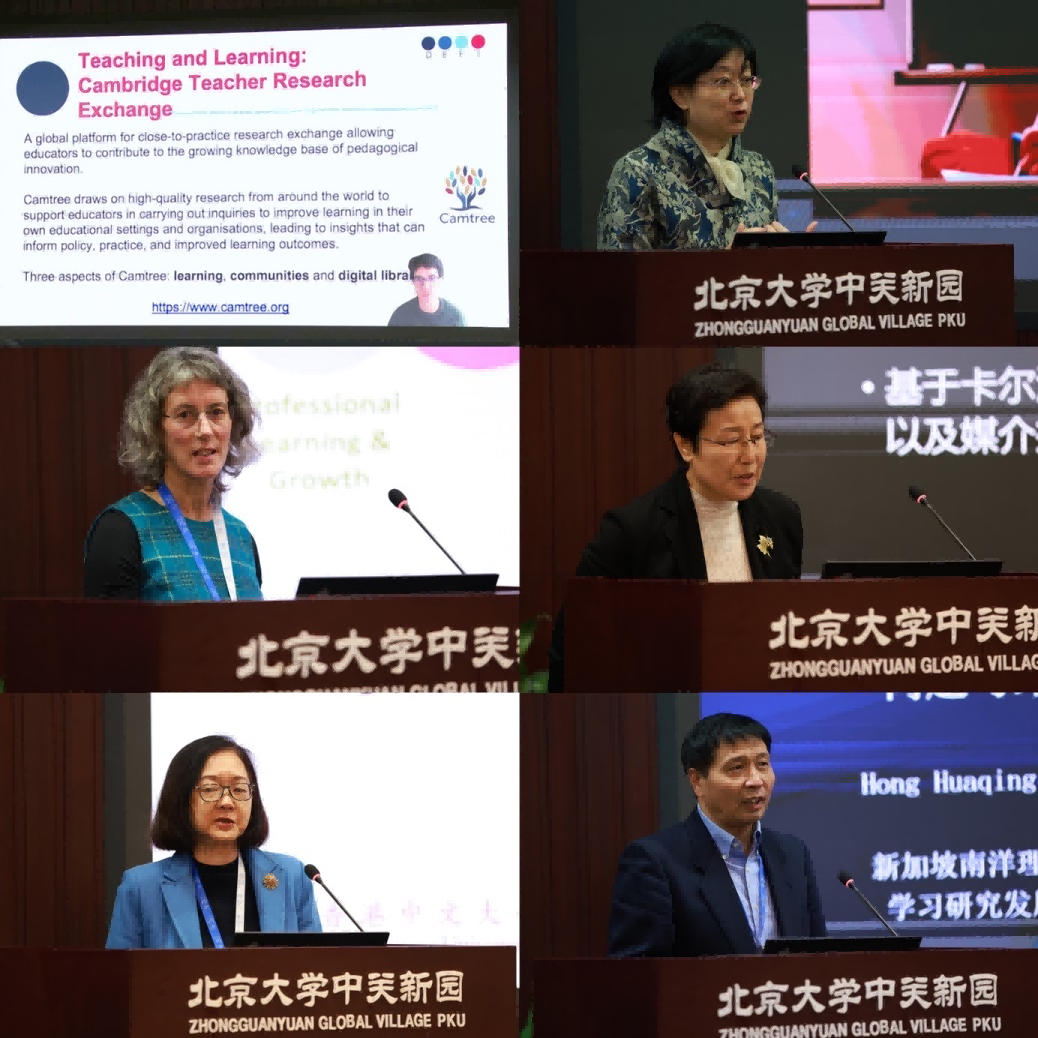
Keynote Speeches on November 4
During the roundtable, Julia Chen, Wang Xiaoxiao (Director of the Online Education Center of Tsinghua University), Jiang Yan (from the University of Tokyo), Wang Zhidong, and Zhou Jing spoke on the topic, “Equity and Quality—Digitally Empowered Educational Reform.” This session was chaired by Wang Shengqing from the Center for Excellent Teaching and Learning at Peking University.
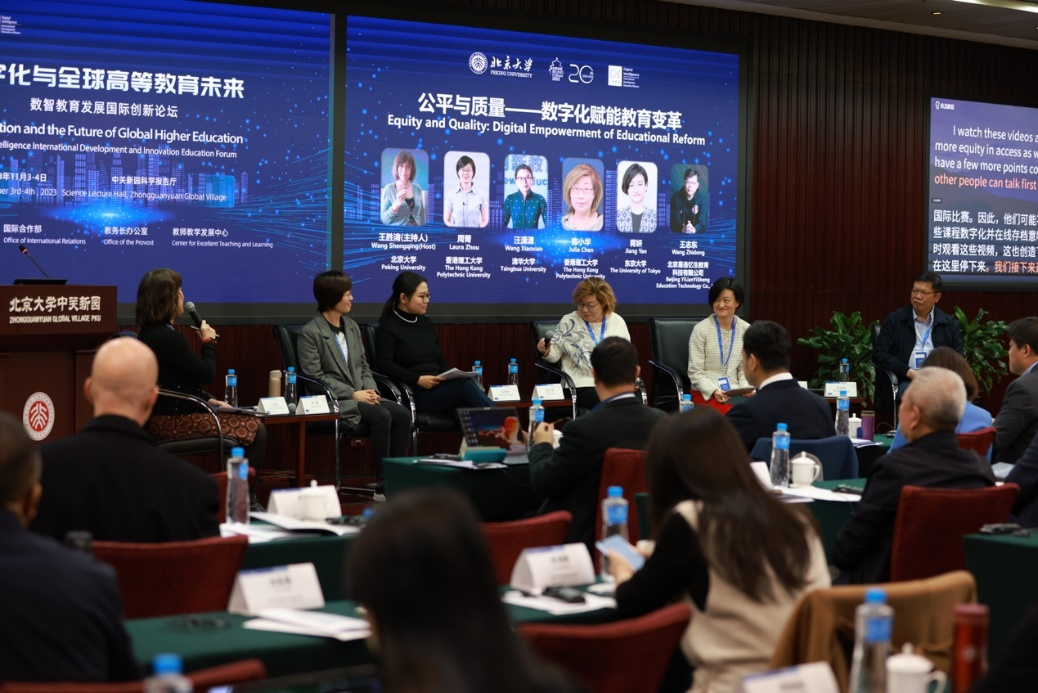
Roundtable
Beijing Forum (2023) Session 9 facilitated in-depth exchanges on digital transformation strategies, theoretical researches, and practical experience in higher education. It called on more universities to collaboratively promote new reforms and breakthroughs in the digitization and intelligentization of higher education worldwide.
